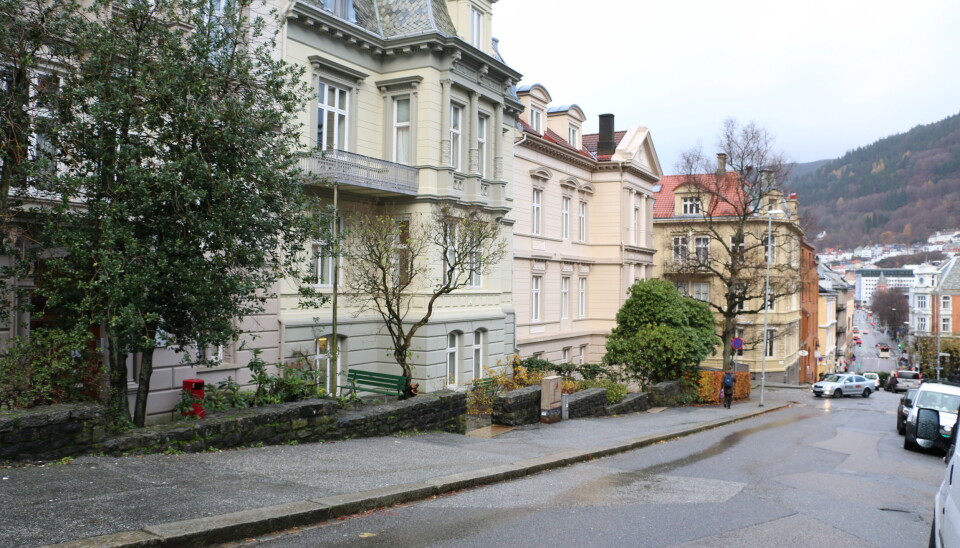Debatt ● 14 employees at UiB
An illegitimate process cannot lead to a legitimate outcome
The process to «explore further integration between Sampol and Admorg» at the University of Bergen is a fundamentally illegitimate process and should be aborted.

OBS! Denne artikkelen er mer enn tre år gammel, og kan inneholde utdatert informasjon.

Denne teksten er et debattinnlegg. Innholdet i teksten uttrykker forfatterens egen mening.
We signatories are writing to express our concern about recent events related to our department and our Faculty at the University of Bergen. These events, imposed upon our department from above, have already had serious negative consequences for our work environment, and they threaten to lead to a major institutional restructuring, despite the opposition of a majority of permanent employees. This communication is intended to make the wider university aware of what is happening; if it can happen to our department, it can happen to other departments as well.
We explain below what is in our view fundamentally wrong with the ongoing process, one in which the Faculty leadership is pursuing a merger of our own Department of Comparative Politics (Sampol) with our neighbouring Department of Administration and Organization Theory (Admorg).
Our key points are that the process was initiated against the expressed will of a majority of permanent members of our department; that the composition of the committee leading the process of departmental integration has been formed and restricted by the Faculty in inappropriate manners; that the committee has no open mandate; and that the timing of the process during a pandemic and the extremely short deadline imposed by the Faculty make a reasonable and legitimate outcome next to impossible. We think this process is not worthy of a university that professes a commitment to democratic principles and we see it as suggesting that the Faculty leadership does not respect employees’ concerns.
In the Autumn of 2020, the Faculty of Social Sciences consulted its departments regarding organizational restructuring, asking Sampol and Admorg about the advantages and disadvantages of merging the two departments. The report from Sampol concluded that the disadvantages of such a restructuring clearly prevail over the advantages, and recommended that the initiative not be pursued any further.
Sampol’s representative body, its Instituttsråd, expressed in a unanimous vote its acceptance of the report as the department’s statement to the Faculty. This position was subsequently emphasised in a letter to the Faculty leadership that was signed by 17 out of 24 of the permanent members of the department. Nevertheless, the Faculty Board on 15 December 2020 decided to pursue further the integration of the two departments.
The Faculty Board, headed by Dean Jan Erik Askildsen, decided nonetheless to proceed with the case and has appointed a working committee to propose a variety of integration scenarios. However, both the manner in which the committee was nominated and its eventual composition are a cause for concern. The working committee that has been appointed has minimal representation from the permanent scientific staff of the two departments (only one representative each), and having publicly expressed support for the merger seems to have been the key criterion for selecting the head of the committee.
Some of the signatories of this letter were proposed as members of the working committee, but their participation was vetoed by the Faculty, apparently due to comments they made during internal meetings on the issue, including during a meeting between the Sampol staff and the Faculty leadership itself. When critical voices are silenced, how can we expect the department's employees to be able to express themselves freely within this process in the future?
The Faculty has set as a premise that the working committee shall have Norwegian as its working language. For a Faculty whose strategy is to be an international leader with strong international recruitment and increased international cooperation, this choice appears strange. This is a cause of concern regarding the representativeness and inclusiveness of committee membership. About half of the temporary staff researchers (PhD fellows and postdocs) are international, and among the permanent scientific staff, many of our newly hired colleagues have been recruited internationally.
Our successful international recruitment strengthens the department in many ways, and it is problematic that the Faculty, through its decision, will reduce the influence of international employees over the department's future. When we know that many of the international permanent employees were particularly critical of a merger, the Norwegian language requirement appears to be an attempt to further exclude critical voices from the process.
Sampol employees were assured by the Faculty leadership that the process would be «open, transparent, inclusive, and deliberative». However, it is difficult to understand how this is an open process when the mandate of the working committee excludes the majority view (viz., maintaining the status quo) as a possible outcome. In addition, before the committee had even started its work, the Faculty leadership had already fixed one of the outcomes (viz., a full merger) that the committee is obliged to propose.
A truly open and deliberative process would allow for all options to be on the table. Instead, this process has started by excluding the majority view and forcing the Faculty’s preferred option. Moreover, the Faculty’s preferred option is the only one to be incentivized with the promise of new positions and a new building. Finally, limiting discussions of integration to only Sampol and Admorg strikes us as strange, as there is little contact between Sampol and Admorg, and many of us have more meaningful relationships to other departments such as Sociology, or other faculties, such as Humanities, Law, or MatNat. An exclusive Sampol-Admorg integration discussion is out of tune with practices at Sampol, where we have a much broader approach to interdisciplinary collaboration, in both teaching and research.
Large institutional changes require time to build consensus and find the right solutions. Because of their massive impact on employees, they need sound legitimacy. Three concerns in particular stand out. First, in terms of legitimacy, it seems wrong to rush such a process within the space of only a few months (February 15-May 15). The integration of two independent departments is not a routine decision; it is a decision of exceptional magnitude within the Faculty of Social Sciences. It is therefore baffling that such an important process is hurried.
Second, it is strange to push through such a major institutional decision just before the election of new leadership at the departmental, faculty, and university levels. It will present the leadership at these three levels with a fait accompli, decided upon at the last meeting of the Faculty Board’s four-year tenure (June 15). Third, pushing through this reform during a period of global pandemic renders the process very difficult from an employee’s point of view. It makes it difficult to have flexible and personal meetings. Furthermore, the stress caused by institutional uncertainty and quarrelling adds to the strain all of us are already experiencing during these challenging times.
The Sampol leadership has been criticized for having an opinion, even though that opinion is merely in line with the formal position of the departmental board (instituttråd) and the majority view among permanent employees. This strikes us as odd. Faculty leadership and directors of research centres were all free to express their opinions on the integration process. Why is it not ok for the Sampol leadership?
More generally, we perceive a risk that the voice of our legitimate institutions of departmental representation is sidelined by the Faculty leadership. As this process has continued, our leadership has effectively been relieved of its duties on this issue by the Faculty. The views of the majority are therefore left without representation on this issue.
Most of us are not convinced that merging the two departments is a good idea. However, at this point we are mostly troubled by the way this idea has been pushed. We are open to dialogue with our colleagues who have different views on institutional reorganization. But it cannot be that a certain idea is pushed through from above against the explicit will of a majority. This is not what democracy looks like. Moreover, it comes at a time when the accountability of leadership is also being questioned at the university level.
The process to «explore further integration between Sampol and Admorg» (as it is officially sold to us) has all the signs of a merger that is forced on us from the top. It is a fundamentally illegitimate process and should be aborted. More generally, when the majority view is being run over, when people have been excluded because of their opinions, and when language has been used to strategically limit participation, it is no longer a Faculty problem, but should be of concern to the University as a whole.
Signed by, in alphabetical order:
Michael E. Alvarez, Associate Professor
Einar Berntzen, Associate Professor
Adriana Bunea, Associate Professor
Gunnar Grendstad, Professor
Raimondas Ibenskas, Associate Professor
Terje Knutsen, Associate Professor
Tor Midtbø, Professor
Yvette Peters, Research Professor
Georg Picot, Professor
Arjan H. Schakel, Research Professor
Per Selle, Professor
Hakan G. Sicakkan, Professor
Kristin Strømsnes, Professor
Michaël Tatham, Professor







Nylige artikler
Når forskere gjør dette, stoler folk mer på forskningen
Stjerneforskere måtte slutte etter kontakt med Epstein
Har etterlyst Gaza-sak i halvannet år. — Ikke godt nok
Fyrer løs mot rapport om forskning ved universiteter og høgskoler
Rapport med vesentlige feilslutninger
Mest leste artikler
Stenger ute alle søkere fra Iran, Russland, Kina og Nord-Korea
Student ble utestengt i to år etter tre tvilsmeldinger
Berg-Hansen og jeg
Sensitive teknologier: Slik er Norges forskningssamarbeid med «risikoland». Samarbeider mest med Kina om KI
PST-sjef advarer mot spioner på Arctic Frontiers